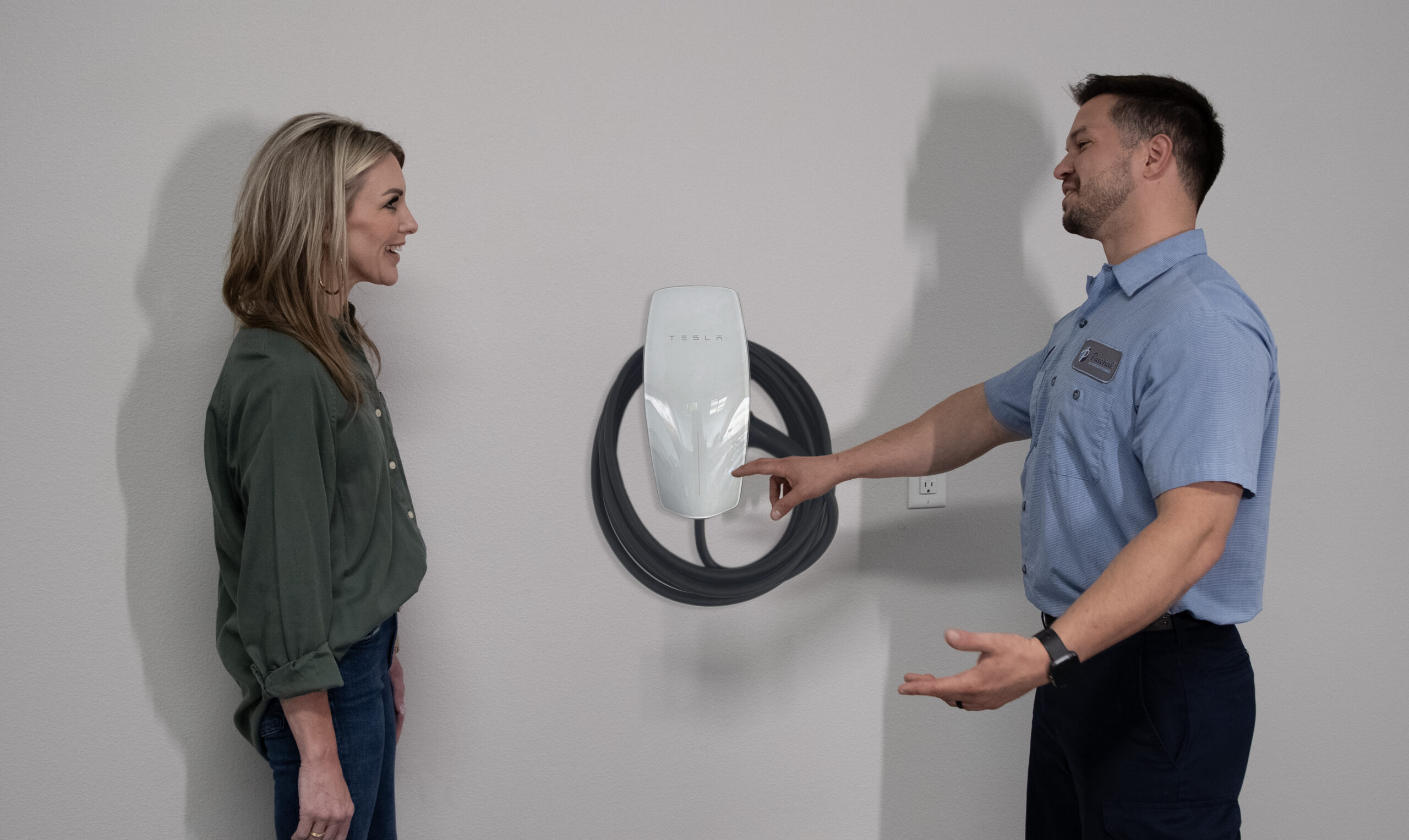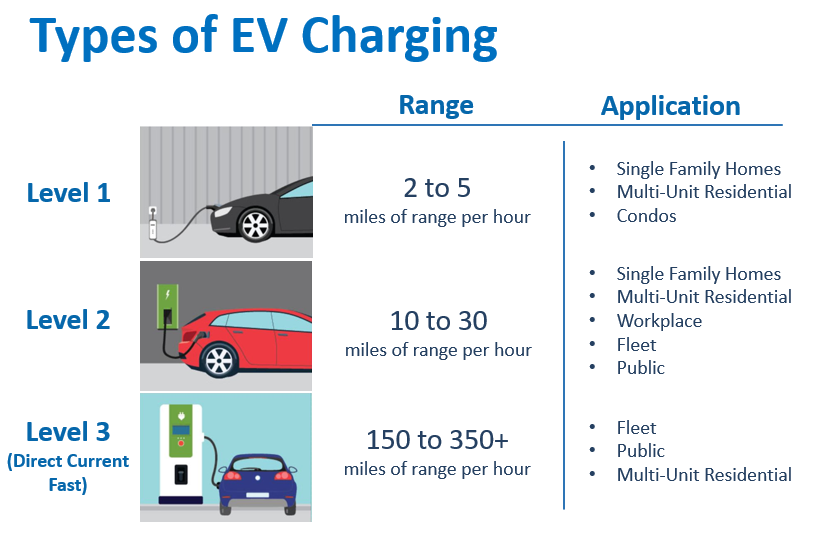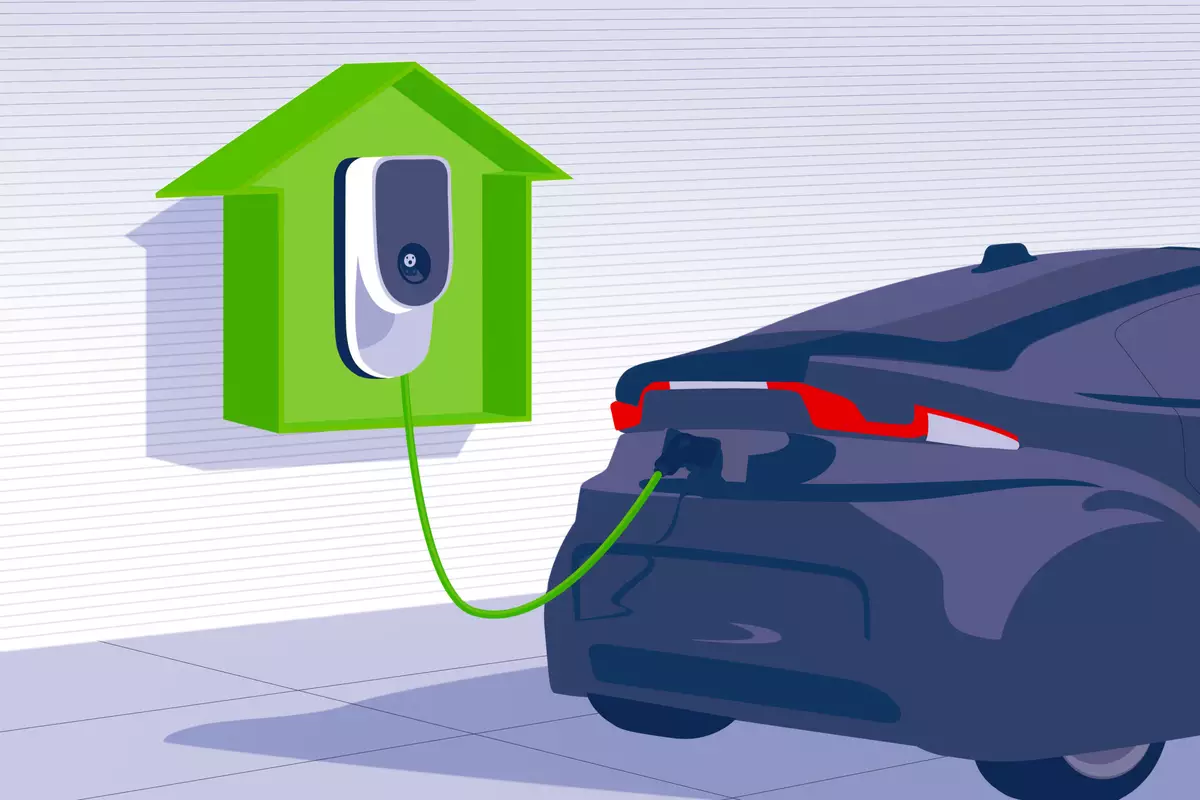Want to save with Paschal? Don’t miss our current offers and specials

Want to save with Paschal? Don’t miss our current offers and specials
Return to Paschal Resource & Education Hub

Thinking about installing an EV charger at home? You’re not alone. With more electric vehicles (EVs) on the road than ever before, installing an EV charger has become a must-have for homeowners who want fast, reliable charging without relying on public stations.
In this guide, we’ll walk you through the key details: why it matters, the types of chargers available, the cost, what to expect from the installation, and answers to common questions.
Paschal Air, Plumbing & Electric installs EV chargers across Arkansas, Missouri, Texas, and Oklahoma. With licensed electricians and over 50 years of service, we’re trusted for fast, code-compliant installs and honest guidance every step of the way.
Public charging stations are convenient in a pinch, but nothing beats the freedom of charging at home. Here’s why homeowners are making the switch:
Convenience: Plug in your EV at night and wake up to a full battery.
Speed: Level 2 home chargers are significantly faster than standard outlets.
Cost Savings: Charging at home can be more affordable than public stations, especially if you charge during off-peak hours.
Plus, according to the U.S. Department of Energy, a home charging station can add resale value to your property and reduce long-term vehicle operating costs.
Not all chargers are created equal. Here’s a quick breakdown:
Level 1 Charger: Uses a standard 120V outlet. It’s the slowest but requires no special equipment.
Level 2 Charger: Uses a 240V outlet. Requires professional installation but offers 3x to 10x faster charging.
Level 3 (DC Fast Charger): Not typically for residential use. These are high-powered chargers you see at commercial charging stations.

For most homeowners, a Level 2 charger strikes the perfect balance between speed and cost.
Installing a Level 2 charger isn’t as simple as plugging it in. It requires:
A dedicated 240V circuit
Potential electrical panel upgrades
A licensed electrician to ensure NEC 625 code compliance and safety
Our licensed electricians at Paschal handle everything from permitting to installation, so you don’t have to worry about a thing.
Learn more about our EV charger installation services:
https://gopaschal.com/services/ev-chargers/
If you’ve never dealt with an electrical upgrade before, here’s what to expect:
Home Assessment: We’ll inspect your panel to ensure it supports a 240V circuit.
Charger Placement: Together, we’ll pick a clean, code-compliant location.
Running the Wiring: Conduit may need to run through drywall or siding.
Permits & Compliance: We handle all permitting and paperwork.
Installation: Most installs take 2–4 hours. You’ll be charging your EV the same day.
Expect a utility bill bump of $30–$60/month. But according to the DOE’s eGallon calculator, EVs cost about half as much to fuel as gas-powered vehicles.
Charger Cost: $300–$700 for most Level 2 models
Installation: $500–$2,000 depending on panel and wiring needs
Estimated Total: $800–$2,700
| Method | Speed | Avg. Install Cost | Avg. Monthly Cost | Best For |
|---|---|---|---|---|
| 120V Plug (Level 1) | 12–24 hrs | $0–$200 | ~$25/month | Light drivers |
| Level 2 Charger | 4–8 hrs | $500–$2,500 | ~$30–$50/month | Daily drivers |
Disclaimer: Final pricing depends on your home’s setup. A licensed electrician will evaluate before any work begins.
What Drives the Price Up
Older electrical panels needing an upgrade
Long distances from panel to charger
Finished walls or attics requiring complex routing
Smart-enabled or premium charger models
High permitting or inspection fees
What Keeps Costs Down
A panel with available amperage
A garage close to the panel
Basic charger models
Open or unfinished walls
Higher quotes usually include:
Licensed, experienced electricians
Full permitting and inspections
High-quality components
Post-install support and clear warranties
Lower quotes may cut corners—using subcontractors, skipping permits, or offering limited service. Ask what’s included; price alone doesn’t tell the full story.
Electrical panel upgrades
Drywall or ceiling repair
Local permitting fees
Utility coordination in select cities
We’re upfront about all of this. Your quote reflects your exact needs—no surprises.
Worth it if:
You drive 40+ miles daily
You value overnight charging
You plan to stay in your home a few years
May not be worth it if:
You drive infrequently
You rely on public charging near work
You’re moving soon or leasing short-term
Evaluate your daily habits and long-term goals.

thedave3000
Local Google Reviewer · 5 Stars
“Top notch service and excellent care on getting my new EV charger installed at home. Prompt, courteous, and no extra charges for adjustments.”
Julie Devine
Google Review · Verified EV Charger Customer
“Paschal beat other quotes. Responsive scheduling. Clear estimate. Devon was knowledgeable, helpful, and professional. I also love hearing that their employees enjoy working there!”
Zerandria Brownlee
7 Google Reviews · 2 Photos · EV Outlet Install (2024)
“Devon did an excellent job installing my 240 Volt Outlet for my Electric Car Charger!”
EVs are generally considered cleaner than gas-powered vehicles. Here’s why:
Zero Tailpipe Emissions: Reduces air pollution and greenhouse gases. (EPA)
Cleaner Electricity = Cleaner Cars: As grids shift to renewables, EVs get cleaner.
Reduced Oil Dependence: Less reliance on imported fossil fuels.
Regenerative Braking: Converts braking energy into battery power.
Even factoring in battery production, EVs tend to have a smaller overall environmental impact—especially as the grid goes green.
Do I need a permit?
Yes. Most cities require one. Paschal takes care of it for you.
Can I install an EV charger myself?
Technically, yes—but not recommended. It involves high voltage and must follow NEC 625 standards.
How long does home charging take?
With a Level 2 charger, most EVs fully charge in 4–10 hours.
Can I use solar panels with my EV charger?
Yes! Many homeowners combine solar with EV charging. Learn more from EnergySage.
Will my energy bill increase?
Yes—but it’s still much cheaper than gasoline. Charging during off-peak hours reduces the impact.
Paschal Air, Plumbing & Electric has licensed electricians ready to install your charger quickly, safely, and up to code.
Whether you’re exploring options or ready to schedule, we’ll walk you through everything and provide a custom quote based on your home’s setup.
Learn more about EV charger installation
Check eligibility for EV charger tax credits:
IRS Alternative Fuel Refueling Credit